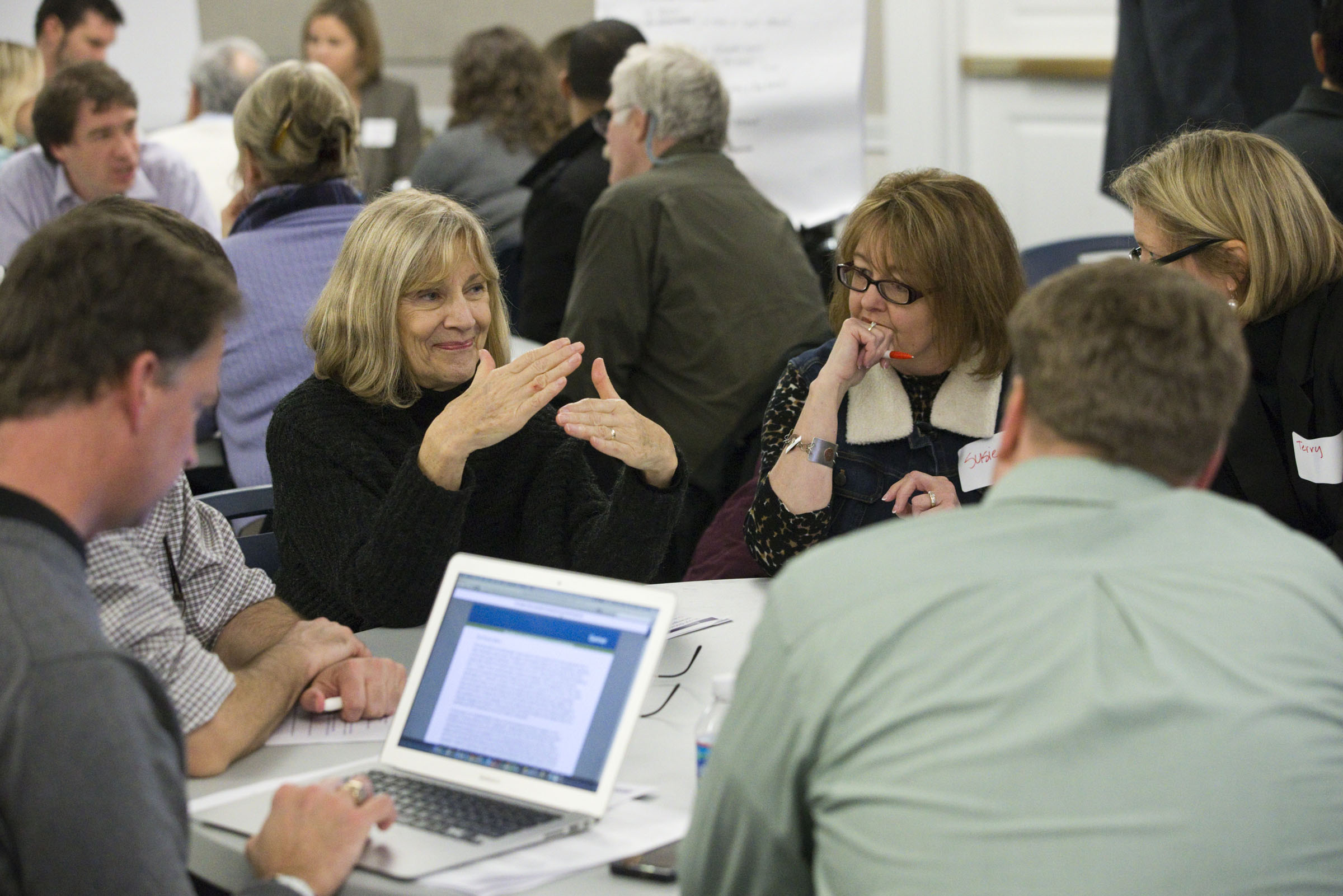Members of the University of Virginia community met Thursday to assess the school’s use of technology and ways in which it will need to change in coming years.
The Technology Working Group hosted a public forum in Newcomb Hall’s South Meeting Room, the latest in a series of public meetings held as part of the strategic planning process launched by President Teresa A. Sullivan. (The Student Life Working Group also was scheduled to have an open forum Thursday, but it was postponed due to the weather.)
At Thursday’s meeting, which drew about 60 participants, Vice President and Chief Information Officer James Hilton, who chairs the working group, said its mission wasn’t to create a shopping list of new gadgets or systems for the University to buy.
“We really spent some time trying to come up with a framework for how we should think about IT,” he said. “What are the forces at work in higher education right now that you ignore at your peril?”
The working group identified issues including the emergence of so-called “big data,” the changing nature of inquiry, an increasingly mobile and global population, and the ways in which technology affects the classroom experience. It also proposed a process for evaluating each of those issues: identifying the force at play, considering the implications for the University, identifying whether it's something that differentiates U.Va. or is strategically necessary, and considering associated technology capabilities.
During small-group discussions, faculty members, staff and students weighed in. In one group, David Germano, an associate professor of religious studies in the College of Arts & Sciences, suggested that the working group add a fifth step to its process for evaluating technology – deployment – and that it group technologies according to whether they are for teaching and learning, research, outreach and communications, or infrastructure.
“You can’t talk about technological capabilities and not talk about how you’re going to deploy them at the University of Virginia: What curricular reforms? What training programs? How do you engage the faculty and students? It’s absolutely crucial,” Germano said.
At the same table, Joe Garofalo, an associate professor in the Curry School of Education and co-director of the Center for Technology and Teacher Education, said the University must first consider whether new technologies are useful to teaching and learning. Otherwise, the University would risk embracing technology for technology’s sake, which misses the point at an institution of higher education, he said.
Siva Vaidhyanathan, chair of the Media Studies Department in the College and a member of the working group, said the group realizes that technologies change quickly, and trends that seem emergent now might be passé in a few years.
“We don’t know what terms we’re going to be using in 10 years, and that’s something that we’re trying to accommodate,” he said.
Alex Pawlowski, a third-year student who works as the technology officer for U.Va.’s Student Council, said his experience with technology at the University is often driven by his own needs. Because he wanted to track the penetration of Student Council communications, he started experimenting with Web analytics, but it wasn’t something he was led to by some systemic effort by the University.
Other groups discussed issues ranging from undergraduate technology literacy to the need to develop technology policies that can change at the same speed as the technologies themselves.
The working group will distill the broader conversations into a small number of suggestions that can be incorporated into the draft strategic plan, a complete version of which is scheduled to be presented to the Board of Visitors in the fall.
Media Contact
Article Information
January 17, 2013
/content/public-forum-participants-consider-university-s-use-technology

